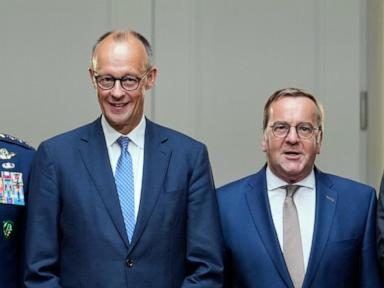Germany’s leadership has initiated a campaign aimed at increasing voluntary military service recruits as part of a broader strategy to enhance its armed forces. This decision comes amid rising concerns about potential Russian aggression, particularly following the invasion of Ukraine in 2022. The government is seeking to modernize the Bundeswehr, Germany’s military, which has faced challenges in attracting new personnel in recent years.
In response to these pressing security needs, Chancellor Friedrich Merz announced the recruitment drive on March 27, 2024. Germany is a prominent member of both NATO and the European Union, and Merz has emphasized the importance of transforming the Bundeswehr into “the strongest conventional army in Europe.” The government has committed a substantial 100 billion euros (approximately $117 billion) to modernize military capabilities, focusing on acquiring new equipment.
Currently, the Bundeswehr consists of around 181,000 active servicepeople, but the government aims to expand this number to 260,000 in the long term, alongside an additional 200,000 reservists. Defense Minister Boris Pistorius highlighted the necessity of growth, stating, “The Bundeswehr must grow — the international security situation, above all Russia’s aggressive behavior, make this necessary.”
The new recruitment initiative, approved by Merz’s Cabinet, seeks to attract individuals without reinstating compulsory military service, which was suspended in 2011. The plan introduces more attractive pay and flexible service terms to encourage enlistment, particularly for short-term commitments. Additionally, it includes enhanced training opportunities for those who enlist for periods of at least six months.
Starting in 2025, the government intends to distribute questionnaires to young individuals turning 18, gauging their willingness and ability to serve. By mid-2027, young men will undergo medical examinations, although they will not be required to enlist immediately.
Despite the initiative’s approval, it still requires parliamentary consent. This Cabinet meeting, notably held at the Defense Ministry, included a briefing from NATO’s supreme commander in Europe, U.S. Gen. Alexus Grynkewich, regarding the current security landscape. Tensions have emerged within Merz’s coalition, particularly between his conservative party and the center-left Social Democrats, over whether to include provisions for reinstating compulsory service if volunteer numbers fall short.
Some conservative members have advocated for mandatory service, asserting that the military’s needs will not be met through voluntary appeals alone. Bavarian governor Markus Söder expressed skepticism, stating that “there won’t be a way past compulsory service.” He pointed out the urgency of the situation, highlighting potential threats in the coming years.
The government remains optimistic about achieving its recruitment goals. Merz expressed confidence in the ability to meet the necessary figures without resorting to compulsory service, at least in the immediate future. The evolving security situation in Europe continues to drive Germany’s military strategies and recruitment efforts, reflecting a commitment to stronger defense capabilities in an increasingly complex geopolitical landscape.
